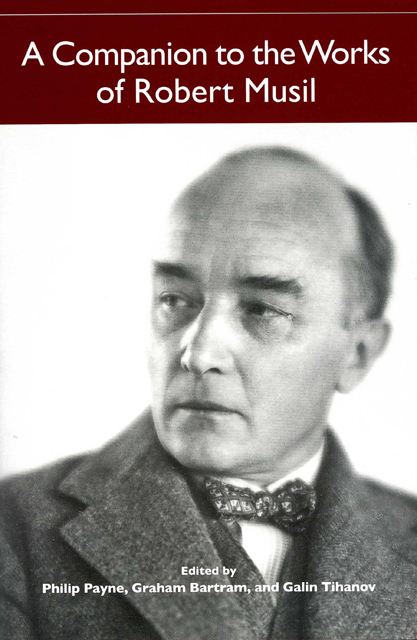Book contents
- Frontmatter
- Dedication
- Contents
- Preface
- Acknowledgments
- List of Abbreviations
- Musil's Principal Works
- Miscellaneous Frontmatter
- Introduction The Symbiosis of Robert Musil's Life and Works
- Musil's Life: Experiences, Reflections, Emotions of an Intellectual
- Literary Works before Der Mann ohne Eigenschaften
- Perspectives on Der Mann ohne Eigenschaften
- Select Bibliography
- Robert Musil's Life: A Chronology
- Notes on the Contributors
- Index
11 - The “Other” Musil: Robert Musil and Mysticism
Published online by Cambridge University Press: 15 March 2023
- Frontmatter
- Dedication
- Contents
- Preface
- Acknowledgments
- List of Abbreviations
- Musil's Principal Works
- Miscellaneous Frontmatter
- Introduction The Symbiosis of Robert Musil's Life and Works
- Musil's Life: Experiences, Reflections, Emotions of an Intellectual
- Literary Works before Der Mann ohne Eigenschaften
- Perspectives on Der Mann ohne Eigenschaften
- Select Bibliography
- Robert Musil's Life: A Chronology
- Notes on the Contributors
- Index
Summary
A Mingled Longing and Distaste for union with the alien Other is, it would seem, at the root of the intellectual's distrust of mysticism, for the idea of mysticism suggests not only a dissolution of boundaries between persons, bodies, and individuations, but a taboo miscegenation of distinct words, ideas, and belief systems — a vague and potentially dangerous blurring of ideologies. The very ideal of unity, necessarily connected to the unio mystica, was by Robert Musil's time, long under suspicion, since modernist revealers of hypocrisy, from Nietzsche on, had debunked most systems that depended on harmony or order. Ideological and aesthetic constructs that recognized the fragmented and alienated nature of diverse contemporary truths, realities, and consciousness were, rather, the intellectual order of the day. Musil himself had a word, “Schleudermystik” (wishywashy mysticism), for the worst kind of mystical discourse; and Ulrich, the semi-autobiographical anti-hero of Musil's great work, tells his sister Agathe, “ich sehe mir den heiligen Weg mit der Frage an, ob man wohl auch mit einem Kraftwagen auf ihm fahren könnte!” (751: I am studying the road to holiness to see if it might also be possible to drive a car on it!; MwQ, 815).
Within Der Mann ohne Eigenschaften, however, and through all of his work, Musil consistently explored his attraction to a trinity of mystical concepts: 1) Traditional ideas of mystical union and loss of self; 2) Subjective time experience, narrative time, and mystical timelessness; 3) The existential effects of symbolic (ritual) action and formal, fictional variations on the real world, all brought together through the medium of the temporary but persistent alternative state of consciousness which he called “der andere Zustand” (the other condition). An avid student of various forms of mysticism, Musil, the former engineer-physicist, had notebooks filled with notes and transcriptions of Meister Eckhart, Farid Ud-din Attar, Mechthild von Magdeburg, St. Theresa, Nicolas of Cusa, Lao-Tse, Rumi, Ramakrishna, Novalis, Swedenborg, Maeterlinck, and numerous other mystic thinkers — ancient, medieval, modern, Eastern and Western. His central source material came from books by two contemporary psychologists of religion,Karl Girgensohn and Konstantin Oesterreich, who used mystical texts as case studies in altered consciousness, conversion, and madness.
- Type
- Chapter
- Information
- A Companion to the Works of Robert Musil , pp. 333 - 354Publisher: Boydell & BrewerPrint publication year: 2010



